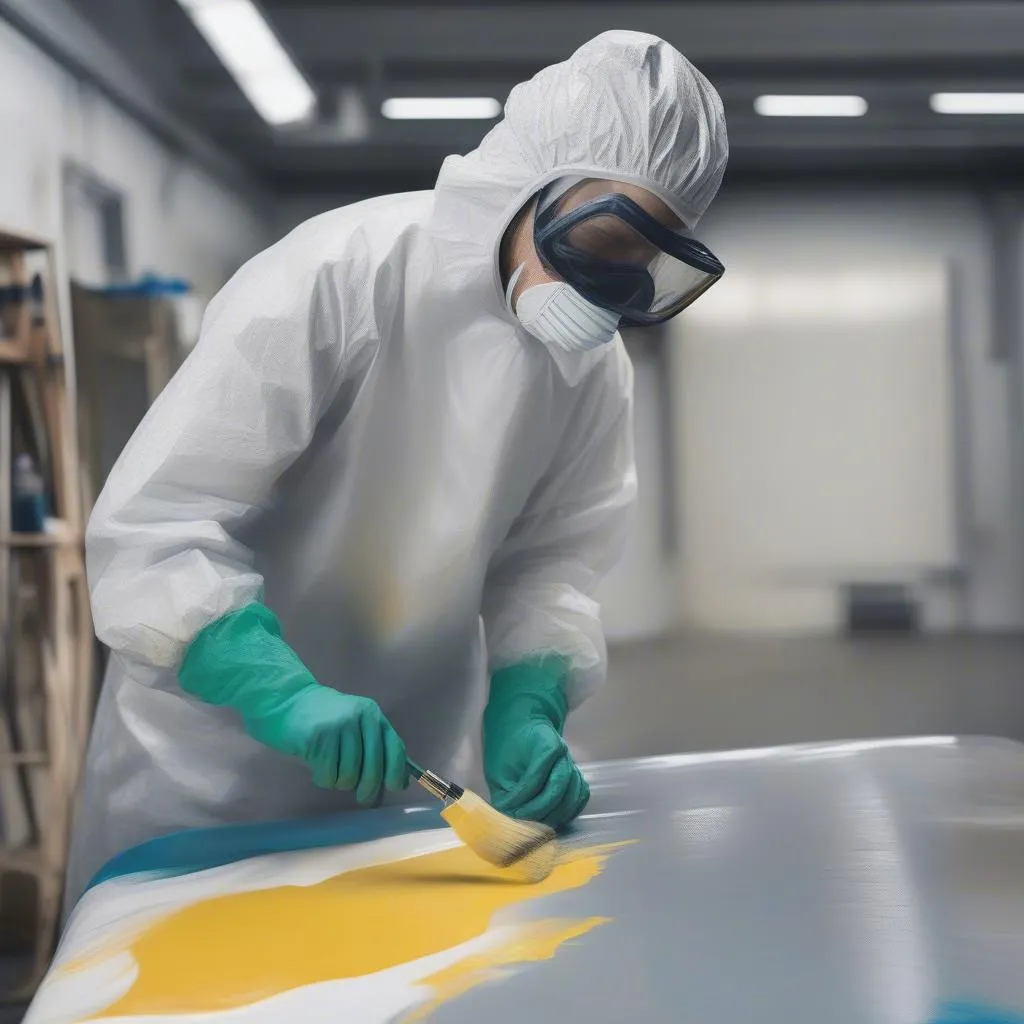Have you ever wondered about the different types of car paint and what makes them unique? One type that often comes up is solvent-based car paint. You might have heard it referred to as “lacquer paint” or even “enamel paint.” But what exactly is solvent-based car paint and why is it still popular in some circles? Let’s dive in!
Understanding Solvent-Based Car Paint
Solvent-based car paint, as the name suggests, relies on solvents to dissolve the paint’s components and create a smooth, even coating. These solvents evaporate during the drying process, leaving behind a hardened paint film.
What are the Advantages of Solvent-Based Paint?
- Fast Drying Time: One of the biggest advantages of solvent-based paint is its rapid drying time. This makes it a favorite among professional painters who need to move quickly and efficiently.
- Durable Finish: Solvent-based paint often creates a durable finish that can withstand scratches and other wear and tear. This is why it’s used for everything from automotive repainting to industrial coatings.
- Superior Gloss: For a high-gloss, showroom-quality finish, solvent-based paint can be a good choice.
What are the Disadvantages?
- Strong Odor: One of the biggest downsides to solvent-based paint is its pungent odor. It’s important to work in a well-ventilated area when using it.
- Flammable: Solvent-based paints are highly flammable, requiring extra caution during storage and use.
- Environmental Concerns: The solvents used in solvent-based paint are volatile organic compounds (VOCs) that can contribute to air pollution. Many automotive paint manufacturers have moved towards more environmentally friendly water-based paints.
When is Solvent-Based Paint a Good Choice?
While water-based paints have become increasingly popular, solvent-based paint still has a place in the automotive world. It’s particularly well-suited for projects where a high-quality, durable, and glossy finish is desired.
Here are some common uses for solvent-based car paint:
- Repainting Classic Cars: Solvent-based paint is often preferred for classic car restorations because it can create a deep, glossy finish reminiscent of the original paint.
- Industrial Coatings: Solvent-based paint is commonly used in industrial settings due to its durability and resistance to chemicals.
- Custom Paint Jobs: Enthusiasts who want a show-stopping custom paint job may opt for solvent-based paint because of its ability to create a truly unique and vibrant finish.
Tips for Using Solvent-Based Car Paint
- Proper Ventilation: Always work in a well-ventilated area when using solvent-based paint.
- Protective Gear: Wear a respirator mask, gloves, and protective clothing to prevent skin and respiratory irritation.
- Fire Safety: Store and use solvent-based paint away from open flames and sources of ignition.
- Clean Up: Use proper solvents and cleaners for cleanup. Dispose of waste materials responsibly.
Looking for Professional Help?
If you’re not comfortable tackling a solvent-based paint job yourself, it’s always best to seek professional help. A qualified automotive painter can ensure a high-quality, long-lasting finish.
Is solvent-based car paint right for your project?
Do you have any questions about working with solvent-based car paint?
What other types of car paint are you interested in learning about?
Contact us at +84767531508 for expert assistance with your automotive repair and diagnostics needs. We have a team of knowledgeable technicians ready to help you 24/7.
 Solvent-based car paint benefits
Solvent-based car paint benefits
 Applying solvent-based car paint
Applying solvent-based car paint
 Variety of color options available in solvent-based car paint
Variety of color options available in solvent-based car paint